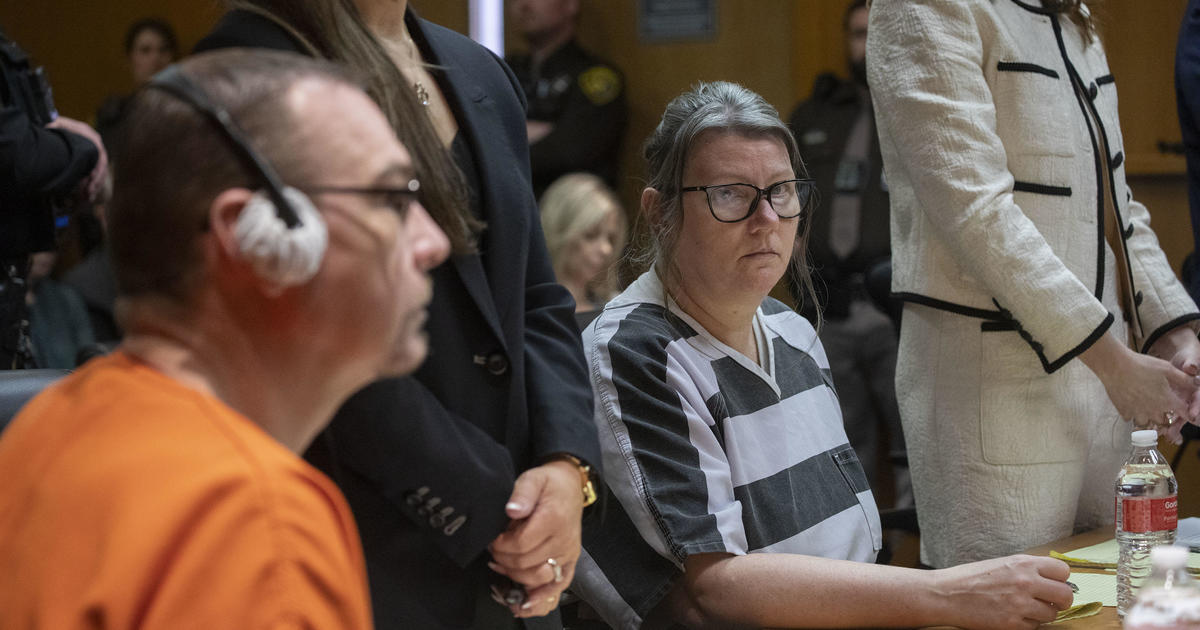MI Prisons Keep Inmates Longer, Costs Millions
LANSING (AP) - Michigan often keeps inmates long after other states would have released them for similar crimes, driving up prison costs by millions of dollars a year and eating up a quarter of the state's general fund.
Both former Democratic Governor Jennifer Granholm and current Republican Governor Rick Snyder have encouraged the parole board to be more lenient when it comes to releasing prisoners who have served their minimum sentences.
Yet a bill that would require that inmates serve 100 percent of their minimum sentence but no more than 120 percent failed to make it through the Legislature during the last two-year session.
That has left 8,000 inmates still behind bars who have served more than their minimum sentences, a practice that's costing Michigan taxpayers around $280 million annually.
It's likely to take years for the parole board to consider those 8,000 cases, which make up nearly a fifth of the prison population. On April 15, the parole board will shrink from 15 members to 10 under a Snyder executive order estimated to save around $500,000 a year in pay and benefits.
A yearlong study released by the Council of State Governments in early 2009 found that Michigan's minimum sentences are similar to the time served by criminals in other states.
But Michigan inmates stay in prison considerably longer than those elsewhere, serving an average of nearly 140 percent of their minimum sentence.
Because of that, a Michigan prison inmate sentenced to serve at least five years is more likely to serve seven. A prisoner sentenced to serve at least 10 years is likely to serve 14 here, while in another state the inmate would serve the minimum or less.
Since the nonpartisan House Fiscal Agency estimates Michigan pays about $35,000 a year to house each prisoner once health costs are figured in, requiring prisoners to serve extra time makes Michigan's corrections system costlier to run.
The state already spends more per prisoner than other Great Lakes states, sometimes considerably more. A CSG study found that, while Minnesota and Wisconsin spent more than $30,000 per inmate in 2008, Ohio, Illinois and Indiana spent $26,000 or less.
Two years ago, Granholm issued an executive order allowing the Parole and Commutation Board to hold inmates beyond 120 percent of their minimum sentence only if they posed a "very high" risk of re-offending. Serious offenders such as rapists and murderers were excluded from the policy.
Around 3,500 inmates were paroled between early 2009 and early this year under that policy, dropping the prison population to under 44,000 inmates, an 8.5 percent decrease. That's down nearly 15 percent from the peak prison population of 51,554 in May 2007, but leaves thousands still serving more than their minimum sentences.
Senate Judiciary Chairman Rick Jones, a Grand Ledge Republican and former Eaton County sheriff, said he's open to considering a bill that would keep many inmates from serving more than 120 percent of their minimum sentence.
"We need to look very carefully at, are we keeping some inmates too long who are nonviolent?" he said. "We're spending more on MDOC than we are on (higher) education. That's backwards. I certainly want to see that fixed."
Not everyone wants to encourage parole board members to release inmates sooner.
"If they're keeping someone past the minimum, there's a reason," said Eaton County Prosecutor Jeffrey Sauter, past president of the Prosecuting Attorneys Association of Michigan.
Many other states don't require inmates to serve even their minimum sentences. There, inmates can shorten their sentences by months and even years by earning "good time" credits.
Michigan did away with similar credits when it put truth-in-sentencing laws in place in 1998. Now, all inmates must serve 100 percent of their minimum sentences, a policy Sauter said prosecutors would vigorously defend.
He and others wonder why corrections costs have remained around $2 billion a year while the prison population and number of prisons has dropped.
Since March 2007, the state has closed six prisons and eight prison camps, and is set to close the prison in Muskegon once Pennsylvania prisoners leave.
"Governor Granholm, even though we disagreed with it, reduced the prison population by something like 6,000 prisoners, closed six facilities, and where's the savings?" Sauter asked. "If we're spending too much, we have to look at the administration" of the prisons.
Snyder's proposal for the budget year that starts Oct. 1 recommends increasing the corrections budget by 5 percent, continuing the policy of spending nearly a fourth of the general fund budget on corrections.
To save money, the governor has proposed closing one more prison by the end of the year to reduce annual spending by $18.9 million. He also wants to competitively bid the operation of food service and prison stores and is asking state workers, including corrections officers, for $180 million in concessions.
The House Fiscal Agency finds that the aging prison population plays a role in why prison costs aren't dropping even though fewer people are locked up.
Per-prisoner health care and mental health services went up more than 7 percent from 2005 to 2010, to nearly $7,000 per inmate. The percentage of prisoners over age 40 has increased from 22 percent in 1994 to 42 percent now, with 17 percent over age 50.
Some of the growing medical costs are tied to overspending on prescription drugs. A recent report by the state auditor general found that Michigan could have saved millions of dollars by choosing alternatives to a mental-health drug that was widely prescribed in prisons, among other changes.
Jones is co-sponsoring a bill that would speed the commutation of dying prisoners, both for compassionate and budgetary reasons.
Others say releasing most old, infirm prisoners would move their health care costs from the corrections budget, funded nearly entirely by the state, to Medicaid, which is a more equitable mix of state and federal dollars.
Rep. Mark Meadows, an East Lansing Democrat who chaired the House Judiciary Committee in 2009-10, said Michigan also should consider setting a certain number of years inmates have to serve for each crime rather than a range of years, which can lead to prisoners remaining incarcerated longer.
"This idea of determinate sentencing is one that some states have embraced and it has helped them keep costs down," he said.
(Copyright 2011 by The Associated Press. All Rights Reserved.)



